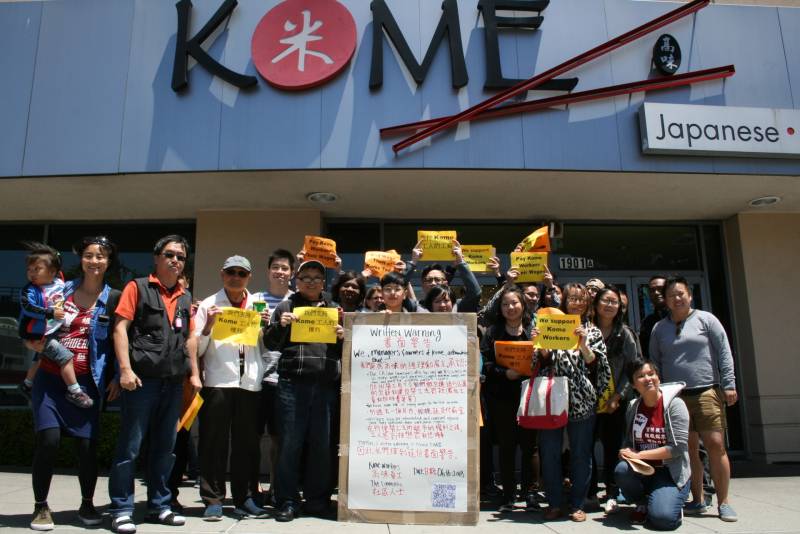Before it went out of business last year, Kome Japanese Seafood Buffet in Daly City was a popular spot for families celebrating birthdays and graduations.
Ping Tam, 29, started working at the Daly City restaurant in 2012, prepping food in the kitchen for the sushi bar.
From his very first paycheck, Tam said, he noticed that his wages only covered eight-hour shifts. But Tam was clocking 10-hour workdays, six days a week, he said. And the wage theft went on for several years.
"I was angry, but also felt powerless,” said Tam, an immigrant from Hong Kong, speaking in Cantonese. “Many of us complained to management but nothing would change. They just ignored us."

After a four-year legal battle, Tam and more than a hundred sushi chefs, servers, dishwashers and other restaurant staff won a multi-million dollar settlement against Kome’s owners. It was announced last month by the California Labor Commissioner's Office.
In recent years, a series of well-known restaurants in the Bay Area, including Burma Superstar and La Taqueria, have settled or received fines for allegedly stealing wages from their workers.
But advocates and state officials in charge of upholding labor laws worry that vulnerable workers today will be less likely to report mistreatment, because the pandemic has resulted in widespread job insecurity.
The California Labor Commissioner's Office opened an investigation and payroll audit at Kome in 2016, after some employees complained that the restaurant’s owners were using workers’ tips to pay minimum wage salaries.
Building a case requires those impacted to cooperate with the labor agency and testify during hearings, said Winnie Kao, an attorney with the Asian Law Caucus in San Francisco. But workers may be afraid of losing their jobs or facing retaliation from their employers, and some are too scared to proceed, she said.
“Some of the most abused workers involve workers who are unfamiliar with the legal system, who are sometimes fearful of government agencies,” said Kao, who represented some of the Kome workers. “There can be language barriers or cultural barriers.”
Tam was one of a handful of Kome workers who were willing to step forward.

